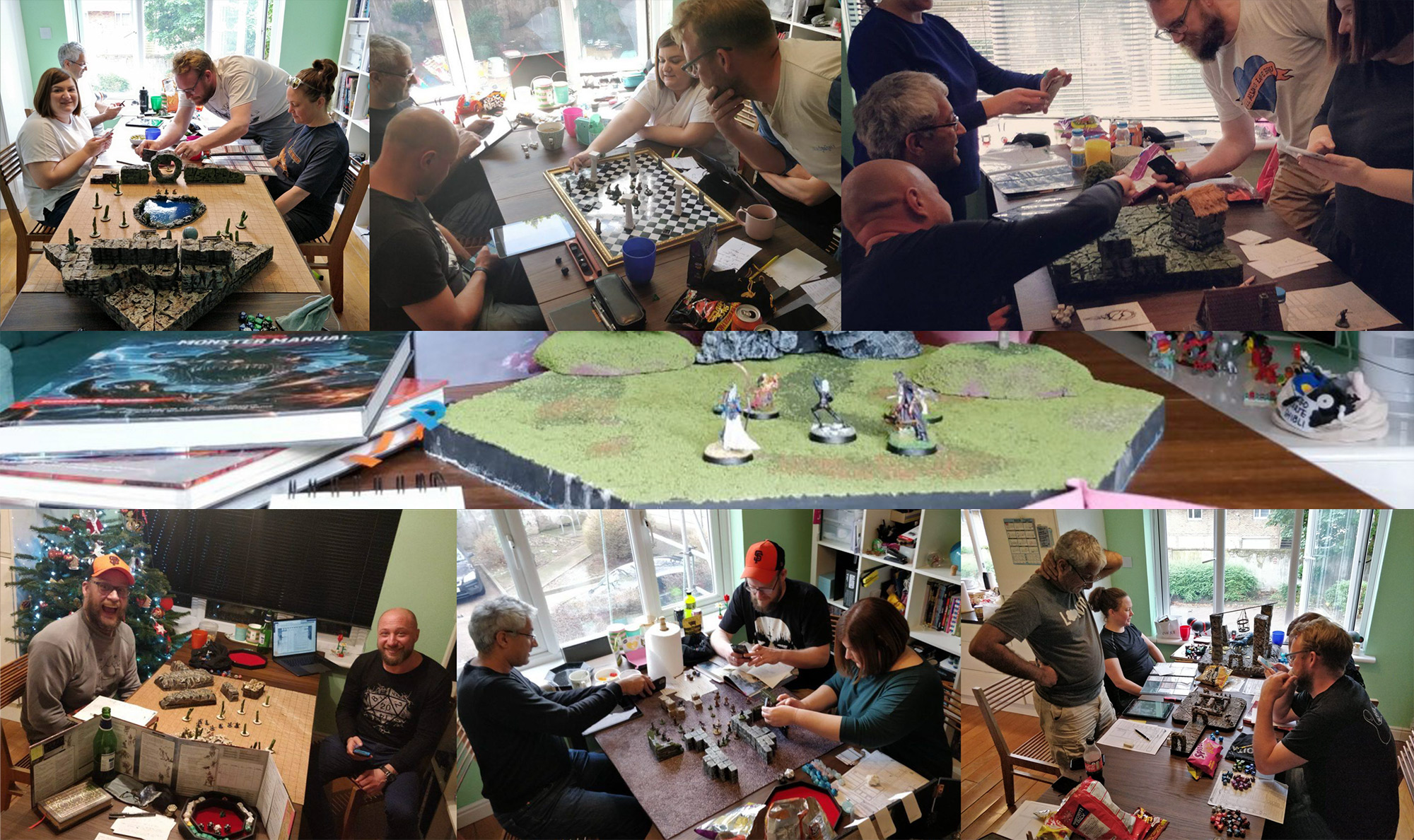I had been playing roleplaying games since mid 80s, but stopped when I moved from Denmark to London in August 1999.
However, in Feb 2018, I started the campaign War of the Triplets with 5 adults who barely knew each other or Dungeons & Dragons.
In a few months I will move back to Denmark after 21 years in London and as such, I have now stopped playing Dungeons & Dragons in preparation of the move, so I want to share some thoughts from DMing for a group of adults over the last 2.5 years as it has been a fun journey of learning supported by all the good advice of the internet.
1. Think TV Series, not Epic Movie Trilogy
It is hard to get a group of busy adults to meet up regularly and some times not all won’t be able to attend. That’s not even taking into account people move.
Continuity will be a challenge.
- Each game session should be a self-contained story like an episode of a TV series.
- Consider whether you REALLY need an in-game explanation for a character’s absence. Will it enhance the story or be a time waster?
- Make sure levelling is maintained even for absent characters. By now, I just use session based levelling for all characters of the campaign regardless of whether they played or not.
- Don’t be offended if people can’t make it. And be prepared to run a game with somebody having to bail out last minute. it doesn’t happen often, but when it does, it is actually important that the person who had to cancel don’t feel they let anybody down.
2. Remove Details and Information Overload
Internet, TV, social media everything floods us with too much info on a daily basis.
Being busy adults with packed calendars and in some case children, means that the players cannot retain large and complex amount of information.
- Stick to simple, straight forward stories. Less is more.
- Remove details that get in the way: Counting arrows, counting coin, spell components, torches, water jugs, etc
- Limit knowledge that is not shared in the entire group. This includes use of multiple languages. In fact, I recommend you only use language in a situation where the party encounters some ancient or obscure text none recognise.
3. Use Tropes and Archtypes
There is nothing more frustrating for players than not understanding what is going on. We have enough of that through the news channels in real life.
I find being an adult means more and more things are less and less clear. D&D is an escape from that.
Keep it straight forward as players clearly had more fun when they “figured it out” and when the situation they face is crystal clear.
- Make the good guys really good and the bad guys really evil (insert evil laugh)
- Play to the strengths of each character. Don’t confuse their roles in the party. The Rogue unlocks the door, the Ranger shoots stuff, the Wizard… well… cast Fireball!
- Rip off storylines and tropes. (The Hero’s Journey is a good place to start).
4. Use Miniatures and Scenery
Theatre of the Mind has its advantages, but for a group of adults with ton of other stuff cluttering their minds, it is much better to have clear representation of combat encounters to give them a quick and clear over view.
I love painting miniatures and building scenery, but even if you don’t, using some cardboard cutouts works perfectly fine to give sense of location.
- Use tokens of ANY kind to represent characters, adversaries and NPCs. (Think Legos and old game cards)
- Use clear indication of distance either using grids or zones (e.g. Ultimate Dungeon Terrain)
- Clear indication of interact-able objects such a chests, trees, tables, chairs, walls, bonfires.
5. Don’t do Dungeon Crawls
Early on, I tried to make an old school dungeon crawl with a complex set of corridors and rooms.
It was a frustrating disaster!. Why? Too much time wasted on frankly boring walking around and pointless exploration that my setup encouraged.
- If there’s no encounter, don’t lay it out!
- Skip boring connective scenes, like walking, with a montage.
- Use Theatre of the Mind where it makes sense to speed things up.
- Create fewer, but much better encounters. Runehammer’s youtube channel of Room Design is pure gold to make every second of the game matter.
6. Let Adults be Adults
I find running games for children and adults to be very different. Don’t try to force adults to be children. It won’t work.
- Let them keep their mobile phones (indeed I love when my players take photos of my setups, but more than that they are responsible adults).
- Spell it out for them. (children will ask “but why…”, adults rarely do. So if they need a piece of info, give it to them).
- Don’t talk down to them or patronise them (yes, you are the Dungeon Master and need to retain the authority, but this really is just a game).
- Be patient and helpful. Our imagination gets rusty as we get older. As adults, we sometimes we need a little push to get there.
Afterthought
It will be strange leaving the UK after 21 years here, but I am looking forward to the adventure.
Who knows when I will pick up the dice again, probably not until late 2021, but I know that no matter how long a break you take, the game is always there to pick up again when you have the time.

